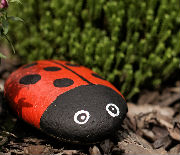
Image source: Cornel Constantin/shutterstock.com
If you’re looking to overcome arachnophobia, you’re not alone. Many people struggle with a fear of spiders, but with the right treatment for arachnophobia, it is possible to regain control. There are various ways to beat spider fear, and managing arachnophobia doesn’t have to be an insurmountable challenge.
While there may not be a quick “cure for arachnophobia,” overcoming fear of spiders is achievable through proven methods and strategies.
In this article, we’ll explore effective ways to tackle your fear and help you live more comfortably in a world full of spiders.
Table of Contents
What is Arachnophobia?
Arachnophobia is one of the most common specific phobias, characterised by an overwhelming and irrational fear of spiders. This fear may not always be based on a negative experience with a spider; rather, it could stem from learned behaviour, genetic factors, or even cultural influences.
Spiders are often misunderstood creatures, and for many, their appearance, movement, or perceived danger triggers an emotional response that can range from simple unease to full-blown panic attacks. The good news is that arachnophobia can be overcome with the right approach.
Why are people scared of spiders?
It’s completely normal to see a spider and get the urge to keep your distance. It means you have the right reactions of a healthy evolved human being.
On an evolutionary level, prehistoric people spent thousands of years living in the wild in a spider-infested environment. Many of these spiders were poisonous, and many people died from spider bites.
Instinctive fear of a certain shape of animal can protect us, as it keeps us away from a potentially dangerous arachnid. It’s how every type of phobia evolves.
Read also: Spider Bite or a Bed Bug Bite?
Arachnophobia symptoms
Do I have arachnophobia? If you are feeling intense fear, anxiety, or panic when you encounter spiders or even think about them, you might be experiencing arachnophobia. Symptoms can range from mild discomfort to severe distress, such as rapid heartbeat, sweating, or an overwhelming urge to flee when in the presence of spiders.
To determine whether you have arachnophobia, consider these common signs:
- Anxiety or distress thinking about spiders, even when they are not around
- A disproportionate or irrational fear of spiders
- Avoidance of situations where spiders might be present
- Physical symptoms such as shaking, sweating, or heart palpitations when encountering spiders
Read also: Are UK Spiders Dangerous?
Why Spiders Aren’t Scary (unless they are)
Sometimes, fear arises from a lack of knowledge. Educating yourself about spiders can help demystify them and reduce their power to induce fear. By learning about the various species of spiders, their behaviours, and the minimal risk they pose, you may begin to see them as less of a threat.
Fun facts about spiders:
- Most spiders are harmless to humans and are actually beneficial as they prey on insects like mosquitoes and flies.
- The majority of spiders found in homes are not venomous and cannot harm humans.
- Spiders prefer to avoid humans and are generally non-aggressive.
By understanding more about spiders, you may find that your fear lessens, as you recognise that they pose little danger to you.
Knowing these things is the first step to getting over your fears. Next, we will list a series of activities you can do yourself in order to “train your mind”.
Check also:
How to Get Over Arachnophobia
- Make a list of activities with increasing anxiety levels. One of the best ways to overcome your arachnophobia is to take yourself out of your comfort zone.
- Start with looking at a photo of a real spider. Look at it, notice the details of it. Imagine it crawling, and making its web.
- Watch a video about spiders. Something educational would show you the life of a spider in the wild. It would look like a savage existence, but through the whole video, keep reminding yourself how small these creatures are.
- Visit a pet store and watch a spider behind glass. Here comes something scarier – a real living spider right in front of you. Yet, confined by the strong glass, so you are completely safe. Look at it for a while. Spiders in aquariums are usually quite lazy, so don’t be surprised if they barely move.
- Let a friend handle a spider in front of you. It should be someone you trust, someone who would not mock your fears or do something you’re not ready for. Watch them hold the spider and see it crawl on the skin.
- Tolerate being around a spider. Let your friend put the spider on a table and sit near that spider. Don’t touch it, just be close to it and watch it.
- Hold a spider. Finally, the biggest challenge of all would be to let the spider crawl on your hand. You can choose when that will happen. Don’t rush it if you don’t feel brave enough. Focus on the idea that you have more control over the spider’s life than it has over your life.
- Talk to a specialist. If your fear of spiders is significantly interfering with your daily life, seeking professional help is a wise decision. A therapist or psychologist who specialises in anxiety and phobias can provide tailored strategies and support to help you overcome your fear.
Natural Remedies and Arachnophobia Therapy Techniques
While not as widely studied as other methods, some people find relief from arachnophobia through natural remedies. These may include herbal treatments, essential oils, or homeopathic remedies designed to reduce anxiety and promote relaxation.
Common natural remedies for spider anxiety:
- Lavender oil: Known for its calming properties, lavender oil can be used in diffusers or applied topically.
- Chamomile tea: Chamomile is often used to reduce anxiety and promote relaxation.
- Valerian root: This herb has been shown to have a mild calming effect and may help with anxiety-related symptoms.
Read about: Do Spiders Hate Conkers?
Steps to Overcome Arachnophobia
- Determine the origin of your fear. In most cases, the fear of spiders is inborn. Like we said – it’s a part of our evolution. However, very often, an acute feat would result from a personal experience. Very often, this experience would be forgotten. It might be in early childhood or even earlier. The logical memory of the event might be forgotten, but the emotion behind it would stay lingering. And at some point, it gets triggered by the sight of a spider, and it re-surfaces as an irrational fear. Try to remember when it first started for you.
- Dwell on why you are so scared. We often need alone time to think about what happened in our past. Especially when it comes to something that can’t leave us alone, even as adults. Think about your fear, remember the first time you felt it and evaluate your state of mind then and now. You will reach a conclusion.
- Learn more about spiders. Find the positive benefits of their existence and dispel myths and urban legends about them. Learn about their behaviour. Put yourself in their skin and think about “If I were a spider, I would…”. Sometimes, something like this is enough to understand that they’re not born to get you.
- Use positive self-talk. If thinking all this is not enough for you, try saying it out loud, so you can hear yourself. Make sure you then use only positive words, do not concentrate on the negative things about them (like their appearance).
No fear can be beaten in a day, so take it step by step. Until then, keep Fantastic Pest control on speed dial in order to keep your home spider free.
Final Thoughts
Overcoming the fear of spiders is entirely possible with the right approach. Whether through exposure therapy, cognitive behavioural therapy, relaxation techniques, or professional help, there are many effective ways to confront arachnophobia and regain control over your fear. Remember that it’s a gradual process, and with time and persistence, you can learn to live comfortably with spiders in your environment.
Take small steps, stay consistent, and don’t hesitate to seek support if needed. With the right tools, you can conquer your fear and lead a more peaceful, spider-free life.










Leave a Reply